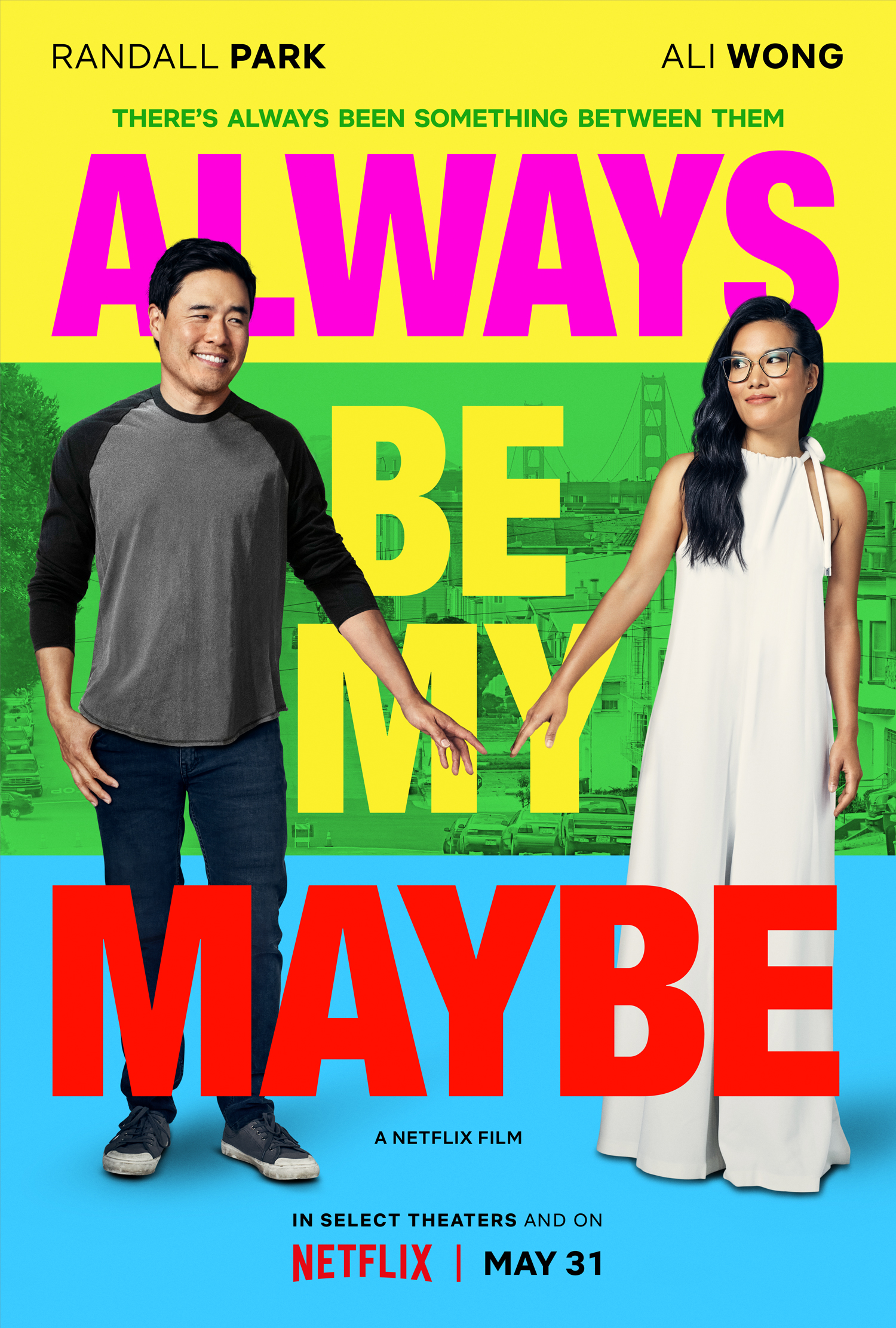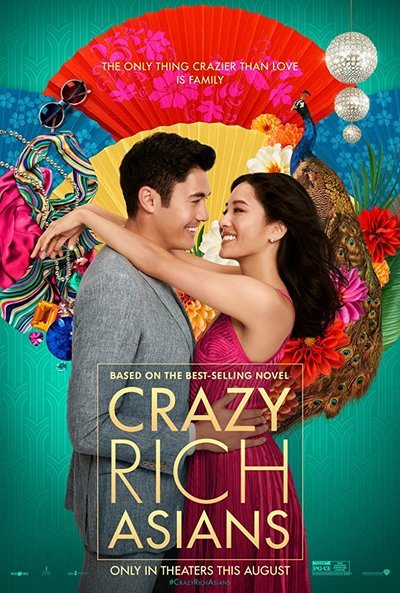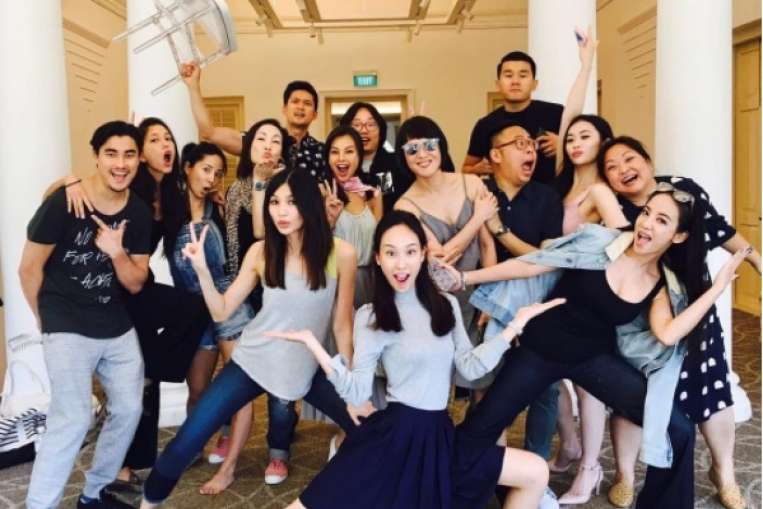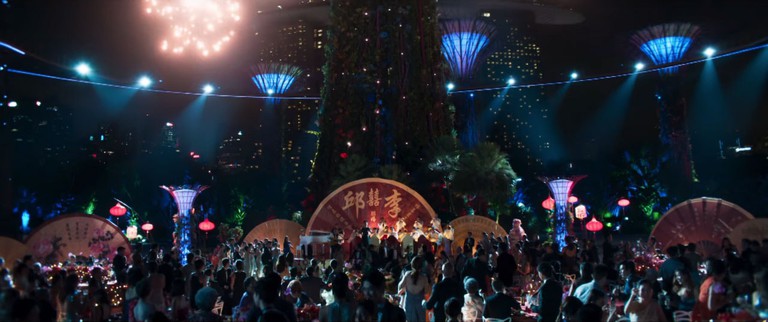Tag Archives: representation
September 6, 2021 Shang-Chi: 3 Sentence Review & 3 Reflections with a Redemptive Analogy
3 SENTENCE REVIEW
Like Black Panther before it, Shang-Chi immersed us in its own world building, not centered on a North American world. It pulls from a rich Chinese martial arts film genre – bringing together Jet Li’s artful forms (see Tai Chi Master), Jackie Chan’s use of everyday environment (see Rumble in the Bronx), and Bruce Lee’s calm ferocity (see Fist of Fury) – as well as a dramatic depth of cinema without words – captured in the eyes of Tony Leung (in turns terrifying, tortured, and tender…so glad the rest of the world can get to know him better :). What was most incredible was how the film was able to simultaneously deconstruct harmful stereotypes and reconstruct together seemingly disparate dualities of old and new, beauty and brokeness, mother and father, Asian and American. 8 out of 10.
3 REFLECTIONS ON SHANG-CHI
There are others who’ve demonstrated better them me how the film has deconstructed and destroyed the racist origins of this Marvel character as well as its associated harmful stereotypes. But the film also reconstructs Asian America in better ways.
1. Shang-Chi is unapologetically Asian (more specifically Chinese)
The film opens with an extended fable like tale narrated completely in Mandarin. The cast is made up almost entirely by those of Asian heritage. The film pulls from ancient Asian history and mythology (allusions to the Khan dynasty and mythical creatures – such as benevolent dragons). It pays homage to all sort of martial arts from a variety of weapons and styles. It also reflects broader values found in many Asian cultures such as filial piety that is reflected in its good and its bad – from honoring elders to never quite living up to parental expectations.
2. Yet, Shang-Chi is also refreshingly Asian American
We find the protagonist lives and makes his home in the US and is bilingual. There’s a range of language fluency in its character much like in Asian America. They can respect their Asian heritage but also have their own paths in America and the world. They don’t have to choose one or the other but can make their own hybrid identity. There is destiny and legacy as well as adaptation that is possible. In that vein, the portrayal of women was refreshing. Not replacing domination with another domination but that of complementation. The mother was able to balance the father. The sister could hold her own with her brother. The female was an important friend to the male friend, as opposed to simply a romantic love interest.
3. And Shang-Chi manages to bring unity in the midst of conflict.
The story is rooted in the stories of both Shang-Chi’s father as well as mother. The father is shown to represents power. The mother represents love. From there many other dualities arise. There is past (Ancient magic, what his father used to be like, Shang-Chi as a child) and present (current technology, what his father is like now, Shang-Chi as an adult). There is Asian (the land and culture of his parents) and there is America (the land and culture that Shang-Chi has found as home). There is evil (violent force, murder) and thereas is good (nurturing, familial care). These dualities are not often found as mutually exclusive but there is conflict or mixture of both. The concept of Yin and Yang is hard to miss here in which the world is conceived of dualities in tension not as pure dichotomies that flow into each other and ought to be in balance. Although some, often in the West, may dismiss such concepts, and of course there are limitations to the concept, in that some things are and should be distinct (namely good and evil). However, it can be a helpful paradigm, as this side of heaven, the world often is not so black and white. The other extreme of simplistic false dichotomies are not helpful either. Even biblically, even though not ultimately so, in our current reality we find seemingly opposing ideas existing together: we are both made in the image of God but also broken by sin, the Kingdom of God is here but not yet, we are predestined but are tasked to take right actions.
So how then should we live in such a world? This is where we can find redemptive analogy even in Shang-Chi. Shang-Chi finds within himself conflicted identities of Asian and American, mother and father, love and violence. SPOILER ALERT. He wants to be perceived as good but he has done evil in the past he is ashamed of. His loving mother has taught him that there is good in him and change is possible. His embittered father has taught him that blood must be repaid with blood and one cannot escape their nature. The answer seems to be found in the motif of the open hand. When Shang-Chi is training with his Aunt she opens his balled up fist. In the final battle with his father, Shang-Chi has the opportunity to use the 10 rings against him, but chooses rather to open his hand and let the rings fall to the ground. This act of surrender opens one up to loss but is the paradox for ultimate victory. Shang-Chi’s father, when taken up by the dark creature opens up his hands and surrenders his rings and his life so his son may live. In the same way Jesus in his battle with sin and death, surrenders his life on our behalf but in this way saves us all. In this way, grace breaks the cycle of bloodshed.
Tags: asian american males, asian americans, redemptive analogy, representation, shang-chi, shangchi, superhero, tony leung's eyes
- Leave a comment
- Posted under see
February 12, 2021 Minari: a 3 sentence review & reflections on the Asian-American experience and biblical allusions

3 SENTENCE REVIEW
With powerful acting, beautiful cinematography, and a nuanced script – Minari is a slower paced film but each scene is filled with meaning not only in what is said but what remains unsaid, true to Asian aesthetics. The film follows the story of a Korean immigrant in America who moves his young family to start a farm in Arkansas, much to the shock of his wife, the added responsibility of his eldest daughter, and the wonder of his young son who must also learn to live with his quirky Korean grandmother who moves in with them. In turns touching, laughter-inducing, and heart-breaking, what sticks with me the most is the way it captured so honestly the struggle between pursuing ones dreams and keeping a family together.
REFLECTIONS ON THE ASIAN AMERICAN EXPERIENCE
As a child of Asian-American immigrants there was so much in this film that resonated with me (and it’s not just because their son was named David! Haha!). The struggle of immigrants to make it in a world that is not made for them. The children of immigrants who must honor their cultural upbringing but also must negotiate living in the only country they have ever known. The savoring of special foods others may not understand. The ignorant, unintended as it may be, slights one must endure as the cultural outsider. But the film does not languish in Asian-American stereotypes and tired immigrant story troupes but subverts them by taking seriously the perspective of the immigrants portraying them in the center of their adulthood, not as aging or irrelevant but as fleshed out three dimensional characters with hopes, joys, fears, flaws, and deep disappointments. The film as a whole is not focused on race but rather on telling the story of one family of immigrants trying to make it in one corner of America. It is worth noting that the director, whose story the film is loosely based on, as well as the actor playing the father, both were entering into the story of their own immigrant fathers. As a young father myself it helped me to understand more and step into the shoes of my father who I recently lost – the struggles he likely had to endure and the fights I remember he had with my mom. Although even the film industry may still not view it so, this too is a very American story, especially as a nation that is made up of immigrants.
REFLECTIONS ON THE BIBLICAL ALLUSIONS IN THE FILM
There are a number of biblical allusions, if not explicitly Christian images, in Minari. In the beginning of the film the father refers to the farm as a “garden” and the grandmother points out the importance of the greater danger of a hidden “serpent”. All of this recalls the Adam and Eve in the Garden of Eden as well as the threat of hidden things in the beginning of the biblical story. Indeed much of the film is situated in the struggle to live off the land and ward off that which would seek to destroy life. The names of the characters have a lot of interesting Christian parallels (WARNING: Spoilers Ahead):
– Jacob: like Jacob of the bible, is the patriarch of the family who schemes to make a way for himself struggling with the earth that will not readily bear fruit and finds himself running from and (indirectly) wrestling with God.
– Monica: (though not a name found in the bible, a name tied to Christian tradition as the mother of St. Augustine) like Monica she is the long suffering mother who holds onto faith in God and faithfully cares for the family.
– Anne: like Anna the prophetess, who long awaits the Messiah, she too is long suffering, responsible early on, and able to see what others do not.
– David: like David who becomes king, he is the rascally runt of the litter but is dearly loved.
Two other characters in the story function as sort of flawed Christ-like figures
– Paul: like the biblical apostle Paul, he is an insider that is an outsider, a little intense in zeal but sincere, coming alongside Jacob in his struggles.
– Soon-ja: though referred to primarily as “grandmother” in the story, Soon-ja can mean “to obey, go along with.” She is an unconventional grandmother to say the least, who does not really go along with what is expected of her, but she is gracious to David and loves him in her own special way, and in one of the most touching scenes of the film holds David close to protect him from any badness he feels.
In Minari, like the minari plant that manages to grow in different places, we may not see everything redeemed, but we see the bonds of love that endure through the struggles.
Tags: America, asian, asian-american, fathers, immigrant experience, Minari, representation
- Leave a comment
- Posted under see
June 18, 2019 LaaF #62: The One About Asian American Representation

TOPIC: The One About Asian American Representation (Asian American Representation, or lack thereof, in Hollywood)
FILM: “Always Be My Maybe” (2019)
DATE ORIGINALLY GIVEN: June 16th, 2019
DESCRIPTION: After a long hiatus (babies, life, etc.) Laaf (Lecture and a Film) returns (can you believe its been nearly 3 years since our last Laaf?) with its 62nd installment (at least from my count): “The One About Asian American Representation (in Hollywood)”.
In this lecture Dave covers a brief history of Asian American representation and misrepresentation in Hollywood, the progress we’ve seen in recent years, and how this all may even be effecting our sexual preferences!
LINK TO VIDEO OF LECTURE: https://www.youtube.com/watch?v=0jRx5Uo7zVA
LINK TO SLIDES OF LECTURE: The One on AA Representation (in pdf form)
3 SENTENCE REVIEW OF THE FILM: A fun film (even more fun to watch with friends) where I was laughing through most of it with all of all the sincere awkwardness that Randall Park brings and all the pointed savagery that is Ali Wong. But I was most surprised actually by Keanu Reeves’ performance that was an amazing and on point parody of himself. Apart from the fact of it being a long overdue portrayal of Asian American in lead romantic roles as AMERICANS in America (from a major studio written by the AA leads themselves), it’s a great film that reminds us that any long lasting love is sustained by friendship.
Tags: asian, asian americans, asians, hollywood, representation, sexual preferences, yellowface
- Leave a comment
- Posted under LaaF Lectures, read, see
August 21, 2018 Crazy Rich Asians: Representation, Reflection, and Redemption

REPRESENTATION
Crazy Rich Asians was #1 in the box office this weekend and has already made and surpassed the budget it took to make the film. Why is that? Representation. Yes, there hasn’t been a rom-com out in a while (and certainly not one that has claimed the number one spot), but it’s also been nearly 25 YEARS since there’s been a major Hollywood studio backing an Asian-American front lined cast. As Awkwafina (providing great comic relief in the film as bff Peik Lin Goh) put it, there have been fully adult Asian Americans walking around with no representation in films in their lifetime until this film. And as Nico Santos (playing the cousin on the outskirts, Oliver T’sien) stated “there’s nobody doing martial arts in this movie. There’s nobody fleeing villages. You know what I mean? We just get to be really awesome people, living our lives and dealing with universal themes that everybody can really relate to.”
Representation is powerful. An Asian American Huffpost editor’s tweets went viral as she shared about her experiences in the past that made her hate her own ethnicity and what it meant for her to see herself reflected on the big screen. Beyond the anecdotes and the word of mouth, the numbers have demonstrated the effect of this representation too as Asian-Americans flocked to the theatres to watch the film this weekend.
I watched the film on Thursday night and a day hasn’t gone by since that I haven’t thought about the film or watched videos of various members of the cast like a crazy person. I underestimated how much I was hungering for representation in American stories. And not just token representation. A whole cast of ENGLISH speaking personas with a whole range of personalities and backgrounds. Where ASIAN MEN are portrayed AS SEXY (not to mention a multitude of stunningly beautiful Asian women as well). And a PROTAGONIST that was not a caricature but a normal person, that the audience identifies as the American even!

REFLECTIONS
So how about the story itself? Ok it was no Black Panther (granted a different genre, but it’s level of social commentary was on a bigger scale…i mean c’mon Ryan Coogler is the bizness) but I was pleasantly surprised by CRA in how much they were still able to touch upon and invert views about class, culture, gender, and even religion. At the end of the day though it was the match up between freakin’ Michelle Yeoh 楊紫瓊 (as the mother-in-law who could express more in a slight movement of the eyes than most could do in a paragraph) and Constance Wu (with her whimsical fierceness) that brought down the house!
Of course the film had its shortcomings. To say the male love interest is a tad too perfect would be a “comfortable” understatement. One can only go so far in depth with a romantic comedy (as opposed to a romantic tragedy ;). The starting point of what was set up as as wealthy and working class (sorry, an Economics Professor at NYU is not a working class position) was a little problematic to say the least. And that the only portrayal of South Asians (as opposed to East Asians who were the main cast) were as creepy guards was saddening. I appreciate Constance Wu’s perspective though when she expressed “I know CRA won’t represent every Asian American. So for those who don’t feel seen, I hope there is a story you find soon that does represent you. I am rooting for you. We are not all the same but we all have a story.”
With that said, i think there was also some great conscious commentary. Of course there’s the culture clash of American individualism and the more Asian collectivism, the marginal man experience of a person as part of two cultures. But that’s more familiar territory in Asian-American stories. There are fresher elements in this story for me. (LIGHT SPOILERS AHEAD) There was the the opening scene, which hauntingly is the most prophetic in my opinion of Asian Americans, where Eleanor Young, the exacting mother-in-law with pain of her own, encounters racism in a London hotel and the tables are turned when she is revealed to be the new owner of the hotel. Although it is satisfying revenge, there is also the foreshadowing of what happens when the oppressed becomes the oppressor (not just in the film but what we must consider in real life as Asians are becoming more of a dominant global force). Then there was that strangely off putting scene of Eleanor, having a bible study with her wealthy friends. Without being too overt it captured some of the religious hypocrisy of cultural (colonial even?) Christianity in an Asian circle (that’s some level 102 stereotypes game): wealth for one’s own, lack of generosity, judging, gossiping, and keeping up of appearances (shout out to my new friends at Fellowship Monrovia for that insight). There’s also the parallel storyline of the female character Astrid, the confidant cousin, and what her story tells us about the landmine of wielding feminine power. Her final words to her husband about social status and true manhood shook me. The scene that got me the most viscerally though, in terms of social commentary, was the wedding reception. It was so amazing in its opulence that it drew me in and I felt this pride welling up in me with the scope and richness (pun intended) of the Asian culture. (SPOILER ALERT) Then in a totally unexpected turn when the mother-in-law and grandmother-in-law shames our protagonist by bringing up an unknown past to her, the whole scene is flipped on its head, revealing the ugly and self-indulgent interior beneath the beautiful but ultimately shallow exterior of wealthy class trappings.

REDEMPTION
The most powerful redemptive analogy of the film comes in the ending act (HIGH SPOILER ALERT) in the mahjong parlor scene (which apparently was the most intense to shoot for the actors).
On one level the story comes full circle because this is where our main character, Rachel Chu, actually employs some Game Theory that was referenced in her economics lecture that introduced her near the beginning of the movie. Using the mahjong game as metaphor, Rachel demonstrates Nash’s Equilibrium, that if you play to meet only your interests you will lose but if you play considering the needs of others, you can win. So by Rachel giving up her love for the sake of the Young family to come out on top, the Young family win was only possible by Rachel losing…in which case Rachel is to credit.
On a cultural level this scene brings to bear so many elements from the culturally specific game of mahjong to the tension of filial piety and sacrifice. But most of all it highlight the American tendency to individualism vs. the Asian tendency to collectivism. If you are only thinking of individual happiness then life can become a zero-sum game where one person’s gain must always mean a loss for another. If one takes into mind the needs of a group then one person’s loss can mean a net gain.
On a spiritual level this scene echoes the work of another‘s sacrifice on our behalf. Jesus made the ultimate representational sacrifice for our sake. By Him laying down his life on the cross for our sins we could reap the benefits of His righteousness and be reconciled to God. By His loss, we win (and so He wins too – demonstrated by His resurrection). THIS was the greatest act of love.
Tags: adaptations, asian, asian american males, asian americans, class, crazy rich asians, redemptive analogies, representation
- Leave a comment
- Posted under read, see
